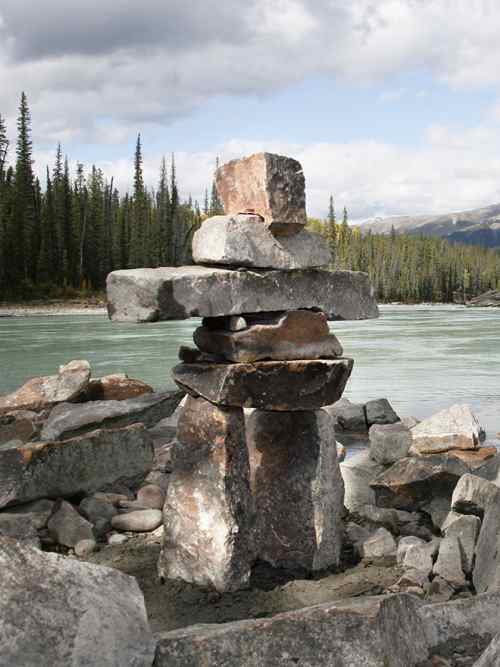
Many Changes Afoot for Canadian Intellectual Property Law: Bill C-86

On October 29, 2018, Bill C-86 – an 800-plus page omnibus budget implementation bill that includes changes relating to patents, trademarks and copyright – was tabled. Here are some of the more notable proposed changes.
Patents
Written Demands
Following through on a commitment made earlier this year to address a perceived problem with patent trolls, Bill C-86 proposes that written demands are to be regulated. All written demands regarding a patented invention received by a person in Canada will have to comply with requirements to be prescribed in the Patent Act regulations. Failure to comply with the prescribed requirements may result in the Federal Court granting various types of relief, including punitive damages.
Prosecution History/File Wrapper Estoppel
The Bill brings file wrapper estoppel to the Patent Act, allowing written communications or part of such a communication to be admitted into evidence to rebut any representation made by the patentee during prosecution. This proposal addresses, in part, a discontinuity between Canadian and U.S. practices, which was noted by Justice Locke of the Federal Court in Pollard Banknote Limited v. BABN Technologies Corp., 2016 FC 883: “prosecution histories in many jurisdictions (including Canada) are now available on the internet. This raises the question whether it is time to revisit the rule against using extrinsic evidence in claim construction.”
Standard Essential Patents
The Bill addresses standard-essential patents, which are patents are directed to technology which has to comply with a technical or industry standard (e.g., the standards relating to Bluetooth or the USB port). It does not, however, elaborate on what would constitute a standard-essential patent or what the terms of a licensing agreement for such a patent would entail; this will be left to the Patent Act regulations.
Prior User Rights
Under the Bill, patent prior user rights will be expanded:
- Prior use will encompass both an “act that would otherwise constitute an infringement” and “serious and effective preparations” to commit the act, but the prior use must have been in “good faith” and the prior user must not have been able “to commit the act only because they obtained knowledge of the subject-matter… from the applicant”;
- If the prior use is carried out by a business, the prior user right can be transferred; and
- New detailed provisions address use or sale of an article, and use of a service.
Experimentation Exception
The requirement that experimentation must be done for a non-commercial use to constitute non-infringement of a patent is removed.
Trademarks
Official Marks
The protection of official marks published by public authorities will finally have some statutory limits. The Bill confirms that prohibitions against use and registration of marks that are the same as, or closely resemble, published official marks will not apply if the entity who requested publication of the official mark is not a public authority, or no longer exists. Also, the Registrar may itself, or on request, publish that official mark rights no longer apply.
Proof of Use for Enforcement within the First Three Years
Until the third anniversary of any registration, actions for infringement and depreciation of goodwill will require proof of use of the registered mark in Canada, or exceptional reasons to excuse non-use. This proposed amendment addresses, in part, abuses that are already evident arising from the 2014 amendments removing use as a trademark registration requirement (the 2014 amendments are to be proclaimed in force June 17, 2019), and also addresses possible constitutional challenges that may also arise from the removal of use as a registration requirement.
Added Opposition Grounds
New “bad faith” opposition and expungement grounds will be added, responding to the concern that removing “use” as a registration requirement may encourage squatters to crowd the Register.
Costs, Case Management and Confidentiality
The Registrar will be permitted to make orders for costs, case management, and confidentiality of documents filed in contested proceedings relating to oppositions, non-use cancellation proceedings and geographic indications.
Leave Required for New Evidence
On appeal of any decision of the Registrar, the filing of new evidence will only be allowed “with leave” of the Federal Court. Currently, new evidence may be filed without leave, and many parties elect to file no, or minimal, evidence before the Registrar, saving it for a possible appeal.
More Trademark Changes to Come?
In addition to the June 17, 2019 proclamation into force of the 2014 amendments, including the removal of use as a trademark registration requirement, the recent United States-Mexico-Canada Agreement (USMCA) negotiations suggest that even further amendments may be required, e.g., to deal with seizure of counterfeit goods “in transit” through Canada.
Copyright
Notice and Notice Content Restrictions
The Bill proposes to amend the notice and notice regime to provide that an ISP’s obligations only arise in respect of claimed copyright infringement notices that comply with the new content restrictions, including the obligations to forward notices of claimed infringement and retain records on the implicated subscribers. The Bill sets out “prohibited content” that may not be included in rights holders’ claimed infringement notices, including: (a) offers to settle; (b) demands for payment or personal information; and (c) hyperlinks to externally hosted offers to settle or demands for payment or personal information.
Additionally, the existing protections for providers of information location tools will be revised to ensure that they only apply with respect to compliant notices of claimed infringement.
These content restrictions have been crafted to address concerns related to the content of claimed infringement notices and, in particular, rights holders’ use of the notice and notice regime to forward aggressive demands to internet subscribers.
These proposed changes are consistent in principle with the decision of Prothonotary Aalto of the Federal Court in Voltage Pictures LLC v. John Doe, 2014 FC 161, where he expressed concerns about the content of claimed infringement notices, and where he ordered that any correspondence sent to an alleged infringer shall clearly state in bold type that no Court has yet made a determination that the alleged infringer has infringed or is liable in any way for payment of damages.
Copyright Board
The Bill proposes sweeping changes to the Copyright Board; many of these changes appear to be geared towards improving the Board’s decision-making efficiency. The Bill also introduces criteria for the Board to consider in setting royalty rates that are “fair and equitable,” including the “willing buyer willing seller” economic principle, public interest considerations, and any other factors which the Board may consider appropriate or which may be set by regulation.
College of Patent Agents and Trade-mark Agents
The Bill proposes the creation of a College of Patent Agents and Trade-mark Agents. Patent agent or trademark agent licensees will be required to comply with a code of professional conduct, and the College will receive complaints, conduct investigations into whether a licensee has committed professional misconduct or was incompetent, and impose disciplinary measures.
The Bill also creates new offences of claiming to be a patent agent or trademark agent and of unauthorized representation.
Bankruptcy
Bankruptcy laws will be amended to protect intellectual property licensees who are in compliance with existing agreements from the impact of sale or other disposition of assets of bankrupt or insolvent persons and companies.
This article was first published in the Toronto Law Journal blog.



